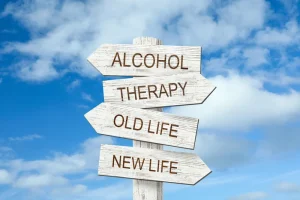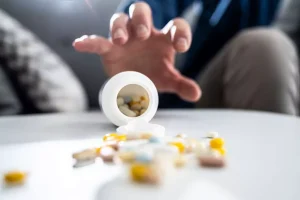Liver disease: Binge drinking raises risk more than overall intake

That translates to about four or more drinks for an adult female or five or more drinks for an adult male. For example, a 2018 meta-analysis found a significant increase in alcohol use and binge drinking over the past 10–15 years, but not among all demographics. It was middle-aged and older adults who showed the most substantial increase in binge drinking. That increase may be contributing to the increasing rates of alcohol-related illnesses and death. “Because alcohol use and especially binge drinking can result in a range of both short-term and long-term consequences, moderation is something anyone who drinks should aim for,” Dr. Koob says.
Stage 1: Occasional Excessive Alcohol Use or Binge Drinking
“There are a lot of interventions,” he adds, and getting help early can help avoid not only later liver damage but a multitude of other problems as well. If drinking has become problematic to the point where it’s hard to stop on your own, there are numerous treatments available. If no one’s pressuring you, but you still feel a desire to fit in, have a non-alcoholic beverage. Simply having a drink to sip on might make you feel more at ease.
- For example, you can resolve to stick to one or two drinks during your outing with friends.
- Whether it’s considered binge drinking will depend on how much alcohol you consume each day and over a week or month.
- This leads to rapid increases in BAC and significantly impairs brain and other bodily functions.
How Long Does It Take to Die from Alcoholism?
More than 1 in 10 people aged 65 and older binge drink at least once a month. As blood alcohol concentration (BAC) increases, so does the effect of alcohol can kill you alcohol—as well as the risk of harm. Even small increases in BAC can decrease motor coordination, make a person feel sick, and cloud judgment.
Binge Drinking: Blackouts and Overdose
He believes that the best treatment is individualized, based on each patient’s needs and lifestyle. There are a number of effective, evidence-based approaches that have been developed over the past several decades. These typically include both counseling (talk therapy) and/or the use of one of three FDA-approved medications designed to prevent ongoing alcohol use, he says.
- Some options may include finding replacement activities or seeking professional help.
- Their volatile behavior and emotions might even have an effect on your relationship.
- About 1 in 6 American adults say they regularly binge drink, sometimes several times a month.
- A fatty liver is more prone to inflammation, and this inflammation can cause issues like cirrhosis.
- The main indicator of a binge-drinking episode is having four to five drinks (or more) within two hours.
Ammonia and manganese can also find their ways to your brain, causing hepatic encephalopathy, which can be fatal. If any of that sounds familiar, consider rethinking your relationship with alcohol. You don’t have to give up drinking entirely—there’s plenty of middle ground between binge drinking and total abstinence. Once you find that middle ground, you can continue https://ecosoberhouse.com/ to enjoy your favorite drinks without jeopardizing your health, safety, or sense of well-being. Binge drinking involves a pattern of short but heavy bursts of alcohol use. When you drink like this, you consume enough alcohol over the course of two hours to raise your blood alcohol concentration to the legal limit of intoxication (0.08 percent in the U.S.) or higher.
- As a result, you might experience a blackout, vomit, or even pass out.
- Each and every one of these deaths is preventable by not using alcohol.
- Completely cutting alcohol out of your life is always an option.
- But, in the United States, alcohol is the second most common cause of liver cirrhosis (late-stage liver scarring) after hepatitis C.
- The Centers for Disease Control and Prevention estimates that more than half of all deaths involving alcohol each year are caused by binge drinking.

If you have trouble stopping drinking once you start, these tips can help you build a healthier relationship with alcohol. Additionally, a 2017 study suggests that binge drinking may be an early risk factor of developing AUD. For example, a 2018 cross-sectional study found a strong relationship between adolescents who binge drink and developing AUD. Binge drinking is a type of excessive drinking, where people consume a large quantity of alcohol in a short period of time. While many people binge drink on occasion, adults with mild-to-severe alcohol use disorder are unable to limit their intake.


- Try to make those types of activities take a backseat to other hobbies.
- Because underage drinking can come with legal consequences, it’s also necessary to establish rules and consequences.
- If any of that sounds familiar, consider rethinking your relationship with alcohol.
- When it becomes confused from the alcohol, it may start to digest itself instead of sending digestive juices to the stomach.
- You may think that because you’re not physically dependent on alcohol and don’t have to drink every day that your drinking isn’t harmful.
